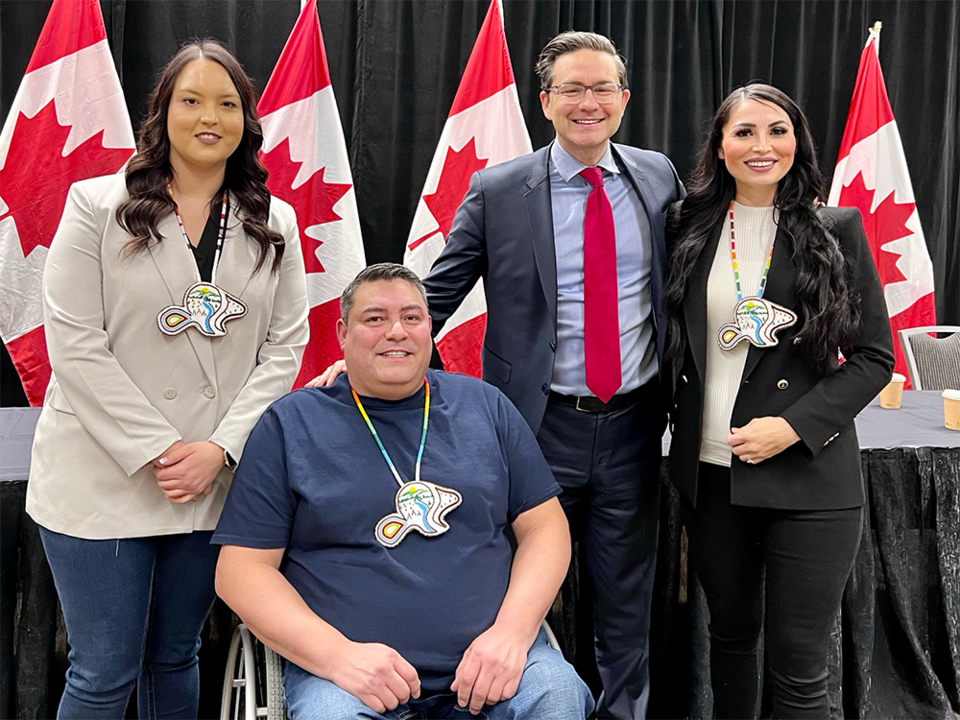Doig River and Fort Nelson First Nations have added their voice to several First Nations seeking a new federal tax policy on resource projects. The optional First Nations Resource Charge (FNRC) would see tax revenues collected from indigenous lands go directly to stakeholder nations.
Under the Indian Act, tax revenue generated by resource projects is collected by the federal government and then dispersed from Ottawa back to First Nations.
The proposal was formally announced in Vancouver last week, and endorsed by Conservative Leader Pierre Poilievre, which he says would speed up negotiations and project approvals, dubbing it a First Nation-led solution to a made-in-Ottawa problem.
The proposed charge would allow First Nations to directly collect 50 per cent of the federal taxes paid by industrial activities on their land, with industry getting a tax credit in exchange. The charge would not preclude communities from using other arrangements like impact benefit agreements.
“The First Nations Resource Charge cedes federal tax room so communities will no longer need to send all their revenues to Ottawa and then ask for it back. It will also make resource projects more attractive to First Nations so they are more likely to go ahead," said Poilievre.
“I am committed to repealing Trudeau’s radical anti-resource laws to quickly green-light good projects so First Nations and all Canadians bring home more powerful paycheques," he added.
Doig River Chief Trevor Makadahay attended the press conference in Vancouver.
“It’s ridiculous that the smallest governments must navigate the most complex negotiations. We want to implement a charge like other Canadian governments to streamline business. The Resource Charge is going to provide the kind of revenues we need to have the water, health care, education, and opportunities that every other Canadian takes for granted," said Makadahay in a press release.
Doig River Coun. Starr Acko said they have too many resource projects in their territory to manage and negotiate in a timely way.
"The current process for negotiating financial compensation for First Nations takes too long, and it costs too much. 鈥疻e are small administrations. We cannot respond and negotiate in a timely way. It costs us hundreds of thousands of dollars," said Acko. "Our time is scarce. It costs Canada tens of billions in lost investment every year. The FNRC changes this. It is a pre-specified standardized charge for doing business in our territory – whether that is forestry, mining, hydroelectricity, oil and gas or any other resource project.”
Sharlene Gale, Chief for Fort Nelson First Nation, and Chair for the First Nations Major Projects Coalition, said the charge would be a welcome change.
“For too long, our people and governments have been left out of the resource bounty of this land. Many of our nations and members want to be part of the resource economy. They want careers, business opportunities, and equity stakes in resource companies," said Gale.
"The First Nations Resource Charge finally means our fiscal jurisdiction over the resources on our lands is implemented. The Resource Charge will mean we can increase the economic benefits to our members and regions, improve services and infrastructure and close the gaps with the rest of Canada sooner," she added.




